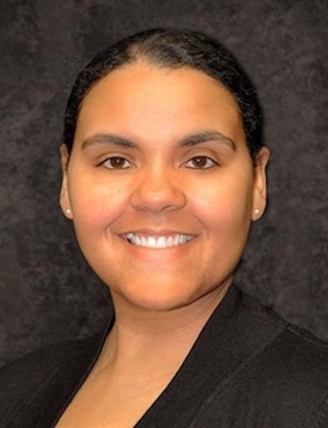What is cash to close?
Mar 12, 2024
•7-minute read
When you buy a home, do you know what costs and cash you’ll need to pay at closing? If you aren’t sure what “cash to close” means, what your closing cost amounts are or how to pay them, read on to learn more.
Cash to close: Definition
Cash to close (also called “funds to close”) refers to the total amount of money you’ll need to pay on closing day to finalize your home purchase or real estate transaction. Unless you’re doing a dry closing, you’ll need to know ahead of time what the cash-to-close amount will be so you can prepare the funds at closing.
Cash to close vs. closing costs: What’s the difference?
Your cash to close and closing costs are interconnected but are still different. Closing costs refer to the fees you pay to your mortgage company to close on your home loan. The cash to close is the total amount – including closing costs – that you’ll need to bring to your closing to complete your home purchase.
Let’s go over some of the costs associated with closing on your new home versus those included in your cash-to-close amount.
Closing costs
The specific closing costs you pay depend on your loan type, mortgage amount, down payment and the state you live in. A few common fees you might pay are listed below.
- Appraisal fees: A home appraisal is a professional third-party estimate of how much the house you’re buying is worth. Lenders require appraisals to ensure the house is worth the amount they’re lending.
- Attorney fees: In some states, you hire a real estate attorney to finalize your title transfer. The attorney fee covers the cost of having a legal expert look over your paperwork.
- Title insurance: Title insurance protects you from third-party claims to your home’s new title. Title insurance companies make sure that the person selling you the home has the rights to the title. They also search for bankruptcies, liens and other factors that might cause you to lose your home. You only pay for title insurance once during closing and you have protection for as long as you own the home.
- Application fees: Lenders charge application fees to process your mortgage application.
- Loan origination charges: Mortgage lenders charge origination fees to underwrite your loan.
- Private mortgage insurance (PMI): If you buy a home with less than 20% down on a conventional mortgage, your mortgage lender will require you to buy private mortgage insurance (PMI). PMI helps protect your lender if you default on your loan. Once you reach 22% equity in your home, your PMI is automatically canceled. You may pay your first month’s PMI premium at closing.
- FHA, USDA or VA fees: If you take out a government-backed loan, you might have to pay a fee to the agency that backs the loan. These fees cover administrative costs and keep the programs going. For FHA loans, an upfront mortgage insurance premium (MIP) of 1.75% is required as well as a monthly fee. VA loans may require a one-time VA funding fee and USDA loans require an upfront guarantee fee of 1% and an annual fee of 0.35%. Rocket Mortgage® doesn’t offer USDA loans at this time, however.
- Pest inspection fee: In some states, and on VA loans, you must pay for a pest inspection before you can close on your mortgage.
Cash to close
Cash to close includes the total closing costs minus any fees that are rolled into the loan amount. It also includes your down payment and subtracts the earnest money deposit you might have made when your offer was accepted, plus any seller credits. Additionally, it includes any refunds for overpayments and other credits.
Here are the costs that make up the typical cash-to-close amount:
- Down payment: Your down payment likely makes up a large percentage of your total cash to close. Your down payment is a percentage of your home’s purchase price that you pay upfront to your mortgage If you get a certain type of government-backed loan (like a VA loan), you may not need to make a down payment.
- Prepaid expenses: Home buyers may have to reimburse sellers for any prepaid costs that were covered by the seller for the remainder of a year. These costs include property taxes, homeowners insurance and HOA fees. Your lender will usually hold the amount you owe for these expenses in an escrow account.
- Deposits and credits: If you’ve already put down money for a down payment with your lender or paid closing costs, you may see a deduction in your cash to close. Any seller or lender credits you have will also be deducted from your cash to close. Remember to keep careful records so you can discuss any discrepancies with your lender.
Where can you find the amount owed at closing?
You can determine how much you need to pay for each of your closing costs by looking at your Closing Disclosure. You should review it closely to make sure your lender credited you for any prepayments.
Your Closing Disclosure itemizes your closing costs, telling you exactly how much you owe for each fee or charge. Your cash-to-close amount is usually higher than your total closing costs because it includes your down payment.
Before you sign your mortgage, compare your Closing Disclosure with your loan estimate. The charges, interest rate and loan terms on your Closing Disclosure should be very similar to your loan estimate. If anything has changed from your loan estimate to your Closing Disclosure, you should discuss this with your mortgage lender.
How to calculate your cash-to-close amount
Borrowers won’t be required to calculate the cash-to-close amount on their own; the amount owed at closing will be outlined on the Closing Disclosure document. However, understanding how to calculate your estimated cash to close could give you an idea of what you owe on closing day.
To calculate your cash-to-close amount, you’ll use the following formula:
(Down Payment + Closing Costs) − (Deposits And Credits) = Total Cash-To-Close Amount
The deposits and credits that you’ll subtract from the sum of your down payment and closing costs include costs like your earnest money deposit, seller credits and lender credits.
How can you pay your cash to close?
There are a few ways that you can pay your cash to close. More secure forms of payment include cashier’s checks, certified checks and wire transfers. Credit cards, debit cards and personal checks might be accepted, but aren’t recommended.
Cashier’s check
A cashier’s check is certified by your bank. The bank initially uses its own money to pay for your charge. After the lender cashes your check, the bank withdraws the money from your account. Cashier’s checks include security features like signatures and watermarks that make them hard to counterfeit. You can get a cashier’s check by request at your local bank or credit union. Most lenders prefer these over certified checks.
Certified check
A certified check tells the lender you have enough money in your account to cover the cost. When you request a certified check from your local bank or credit union, they’ll make sure you have all the necessary funds in your account and will sign on your check. Finally, the bank locks the amount in your account until the lender cashes the check.
Wire transfer
Wire transfers allow you to electronically send money to your lender before closing. You can ask your bank to do a wire transfer in person, over the phone or online. A wire transfer is a great option if you can’t make it to the bank in person before closing.
Most banks use a service called Society for Worldwide Interbank Financial Telecommunication (SWIFT) to complete wire transfers. Ask your mortgage lender for their SWIFT address so you know where to send your funds.
Keep in mind that wire transfers are not immediate, and it may take a few days for your lender to receive the funds. Make sure you double-check the address before you send the money to your mortgage lender. Wire transfers are not reversible.
Cash
Though your lender may accept actual cash during your closing, it’s not a recommended payment method. Using paper money to pay for your closing may set off questions about where the money came from. Some title companies and mortgage providers have banned cash payments during closing.
Credit or debit card
Your lender needs to know you have the money ready for closing costs in your account before they approve your loan. Credit cards allow you to borrow money from creditors, so they’re risky for lenders. Credit card companies also block large and unusual charges based on your spending habits, so your closing costs will almost always be automatically blocked even if you could use a debit card.
Your lender may allow the use of a secured credit card, which is a type of credit card that requires a cash deposit as collateral. Be sure to contact your lender to see if they accept secured cards at closing.
Personal check
Lenders will almost always require you to use a certified or cashier’s check instead of a personal check to cover your closing costs (or a wire transfer).
Cash to close FAQs
Below, we answer a few additional questions you may have about the cash-to-close process.
What does a negative cash to close mean?
If your estimated cash-to-close amount is negative on your loan estimate, it means the sum of your deposits and credits is higher than the sum of your down payment and closing costs. In short, it means the buyer will get money back on closing day. Consult with your mortgage lender if your cash-to-close amount is negative.
Can I negotiate my cash-to-close amount?
You can negotiate your closing costs, which can lower your total cash to close. You can ask the seller to cover a portion of your closing costs. You can also work with your mortgage lender or real estate agent to figure out a way to decrease the total amount you owe at the closing table. This includes the amount of your down payment.
Can cash to close be rolled into my mortgage loan?
Your total cash-to-close amount can’t typically be rolled into your mortgage because certain expenses, like your down payment, are due upfront. Depending on the type of loan, you may be able to roll some (or all) of your closing costs into your monthly mortgage payments.
If you’re a first-time home buyer, you may also be able to get costs like your down payment covered entirely, which can lower the amount due at closing. Be sure to speak with your lender if you’re looking to roll specific payments into your mortgage.
What happens if I can’t pay the cash to close on time?
If you can’t come up with the cash to close, you may need to buy time to collect the funds by negotiating a later closing date. Otherwise, you could lose your earnest money, and the deal could fall through.
Is there a difference between clear to close and cash to close?
Though both terms relate to the final stage of buying a property, they refer to different concepts. “Clear to close” means you’ve met all your lender’s requirements to close on the mortgage, while “cash to close” refers to the total amount of cash you’ll need to bring to the closing table.
The bottom line: Prepare ahead to pay the cash to close
Your Closing Disclosure lists the total amount of money you’ll pay during your mortgage closing. The cash-to-close amount includes your closing costs and other fees including appraisal, attorney, insurance, inspection and application fees, plus your down payment and any additional costs.
Are you ready to take the next step in the home buying process? Start your loan application today with Rocket Mortgage.

Carla Ayers
Carla Ayers is former section editor for Rocket Homes and is a Realtor® with a background in commercial and residential property management, leasing and arts management. She has a Bachelors in Arts Marketing and Masters in Integrated Marketing & Communications from Eastern Michigan University.
Related resources

9-minute read
How to buy a home in New Jersey
Buying a house in New Jersey is an exciting milestone. Use the Rocket Mortgage guide to learn more about home prices and assistance programs in New Jersey.
Read more

7-minute read
Real estate purchase and sale agreement: A complete guide
A real estate purchase and sale agreement (PSA) helps ensure the buyer and seller are on the same page before closing. Learn what this contract might contain.
Read more

6-minute read
How to buy a home in Utah
Are you ready to buy a house in Utah? Navigating the process can be hard, but it’s easier with the Rocket Mortgage guide.
Read more